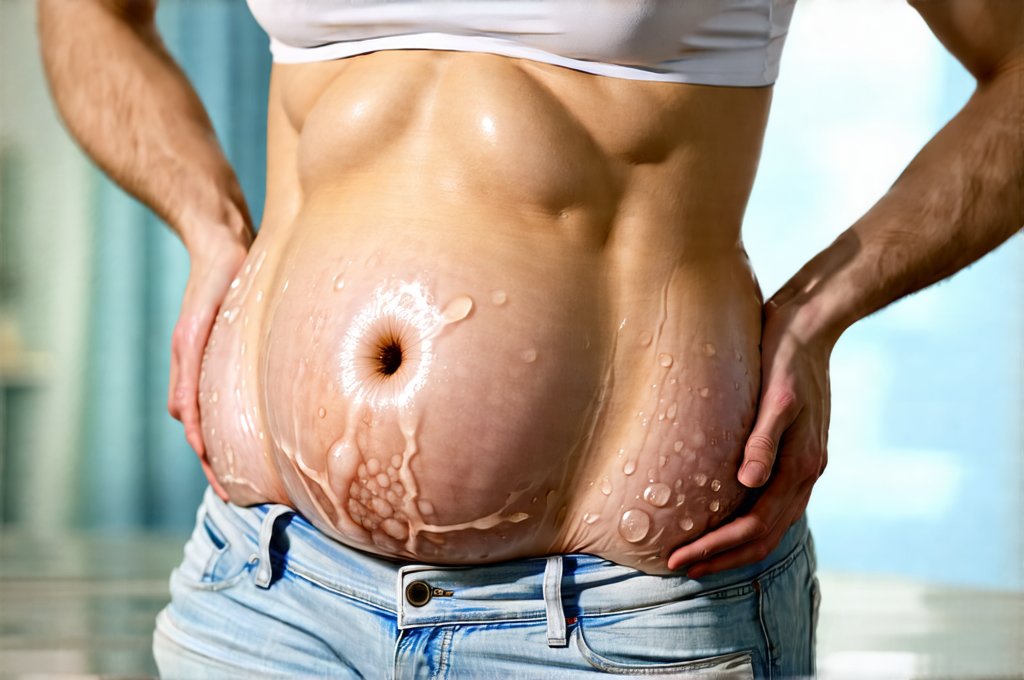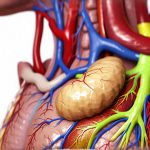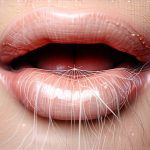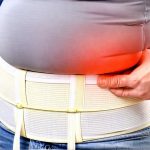Many people intuitively associate water with overall health and well-being – and rightfully so! Staying adequately hydrated is fundamental to nearly every bodily function. However, for some individuals, drinking even seemingly small amounts of water can lead to uncomfortable bloating, a sensation many describe as feeling full, tight, or swollen in the abdomen. This experience can be perplexing; after all, shouldn’t water relieve discomfort rather than cause it? The reasons behind this phenomenon are surprisingly diverse and often interconnected, ranging from underlying digestive conditions to simple habits we may not even realize we have. Understanding these causes is crucial for identifying potential solutions and restoring a comfortable relationship with hydration.
This isn’t merely about aesthetic concerns or minor inconvenience; bloating can significantly impact quality of life, leading to discomfort during daily activities, social anxiety, and even psychological distress. It’s important to differentiate between occasional bloating—which most people experience at some point—and chronic, persistent bloating that may warrant medical investigation. While this article explores the common reasons why water might contribute to bloating, it’s essential to remember that self-diagnosis isn’t recommended. If you consistently experience significant bloating, consulting with a healthcare professional is always the best course of action. This exploration aims to provide information and context, not to offer medical advice.
The Role of Digestive Health
The digestive system is incredibly complex, relying on a delicate balance of processes to efficiently break down food and absorb nutrients. When this balance is disrupted, it can lead to various symptoms, including bloating. For individuals with pre-existing digestive conditions, drinking water can sometimes exacerbate these issues. Conditions like Irritable Bowel Syndrome (IBS) often involve increased sensitivity within the gastrointestinal tract. Water intake, particularly in larger quantities, may stimulate gut motility (movement), which, while generally beneficial, can feel uncomfortable or even painful for those with IBS, leading to bloating and cramping. Similarly, individuals with Small Intestinal Bacterial Overgrowth (SIBO) might experience heightened gas production when water mixes with bacteria present in the small intestine, resulting in distension and bloating.
Another common contributor is delayed gastric emptying – a condition where food stays in the stomach for longer than it should. This delay can lead to fermentation of undigested carbohydrates, producing gases that contribute to bloating. Water can sometimes slow down gastric emptying, especially if consumed with meals. It’s not that water itself causes the delay, but rather that adding liquid to a system already struggling with digestion can worsen the existing problem. Finally, conditions affecting intestinal permeability (often referred to as “leaky gut”) may also play a role; increased permeability allows larger molecules to pass into the bloodstream, potentially triggering inflammation and bloating in response to fluid intake. You might be interested in learning more about why some people react to certain foods that impact digestion.
It’s important to note that these are often interconnected. For example, SIBO can contribute to IBS symptoms, creating a cyclical pattern of discomfort. Identifying the underlying digestive issue is vital for addressing the root cause of water-related bloating. Dietary changes, stress management techniques, and potentially medical interventions may be necessary to restore optimal digestive function. If you find yourself struggling with this, consider exploring why people with desk jobs might experience more issues.
Speed & Volume: How We Drink Matters
Beyond pre-existing conditions, the way we drink water can significantly influence whether or not it causes bloating. Many people tend to gulp down large volumes of water quickly, especially when they realize they’re dehydrated. This rapid intake can overwhelm the stomach and intestines, leading to a feeling of fullness and distension. Think of your digestive system as having limited capacity; suddenly flooding it with a large amount of liquid disrupts its natural processing rhythm. The body may react by retaining some water, contributing to bloating.
Furthermore, drinking water during meals can sometimes exacerbate the issue. As mentioned earlier, this can slow down gastric emptying and increase fermentation in the stomach. This isn’t true for everyone; some individuals find that sipping small amounts of water with meals aids digestion. However, if you’re prone to bloating, experimenting with drinking water between meals rather than during them might be beneficial. Consider adopting a mindful hydration approach:
- Sip water slowly throughout the day instead of chugging large quantities at once.
- Focus on consistent, smaller intakes rather than infrequent, large intakes.
- Pay attention to your body’s signals and drink when you feel thirsty, not just according to a rigid schedule. It is also helpful to understand why some people get reflux from water itself.
Identifying Specific Triggers & Dietary Considerations
Bloating isn’t always caused by the water itself; it can be triggered by what accompanies the water or what you’ve recently eaten. For example, drinking sparkling water introduces carbon dioxide into the digestive system, which can lead to increased gas and bloating. Similarly, consuming water with meals that are high in sodium can cause fluid retention, contributing to a bloated feeling. Pay attention to your diet and look for potential triggers:
- Foods High in Sodium: Processed foods, fast food, and even some canned goods often contain excessive amounts of sodium.
- Artificial Sweeteners: Sorbitol, mannitol, and xylitol – commonly found in sugar-free products – can be poorly absorbed by the gut, leading to fermentation and gas production.
- Cruciferous Vegetables: While incredibly nutritious, vegetables like broccoli, cauliflower, and cabbage contain compounds that produce gas during digestion. This isn’t necessarily a bad thing, but it can contribute to bloating in sensitive individuals.
Keeping a food diary can be immensely helpful in identifying specific dietary triggers. Track what you eat and drink, along with any associated symptoms, to pinpoint potential problem areas. Experimenting with eliminating or reducing these triggers may alleviate water-related bloating. Consider exploring the low-FODMAP diet under the guidance of a healthcare professional if you suspect food intolerances are playing a role. You might also find information on why do some foods cause brain fog and bloating helpful here.
The Role of Electrolytes & Mineral Balance
Maintaining proper electrolyte balance is crucial for overall hydration and digestive function. Electrolytes – such as sodium, potassium, and magnesium – help regulate fluid balance within the body. When these electrolytes are out of whack, it can disrupt digestion and contribute to bloating. Dehydration often leads to an imbalance in electrolytes, creating a vicious cycle where the attempt to rehydrate actually exacerbates the problem.
Drinking plain water doesn’t replenish electrolytes; in fact, excessive water intake without adequate electrolyte replacement can further dilute them. This is particularly relevant for individuals who engage in strenuous exercise or live in hot climates where they lose more fluids and electrolytes through sweat. Incorporating electrolyte-rich foods into your diet – such as bananas (potassium), spinach (magnesium), and pickles (sodium) – can help restore balance. Alternatively, consider using an electrolyte supplement or drinking natural coconut water. Understanding why nightshades bother some people could also help you identify dietary sensitivities.
Addressing Stress & Gut Connection
The gut and brain are intricately connected via the “gut-brain axis.” Stress and anxiety can significantly impact digestive function, leading to altered motility, increased inflammation, and ultimately, bloating. When you’re stressed, your body shifts into “fight or flight” mode, diverting blood flow away from the digestive system. This disruption can slow down digestion, leading to fermentation and gas production. Furthermore, stress hormones like cortisol can increase intestinal permeability, exacerbating symptoms for those with “leaky gut.”
Managing stress is therefore an important component of addressing water-related bloating. Consider incorporating stress-reducing techniques into your daily routine:
- Mindfulness Meditation: Regular meditation practice can help calm the nervous system and reduce stress levels.
- Deep Breathing Exercises: Simple deep breathing exercises can quickly alleviate anxiety and promote relaxation.
- Regular Exercise: Physical activity releases endorphins, which have mood-boosting effects.
- Adequate Sleep: Prioritizing sleep is crucial for both physical and mental well-being.
Remember that addressing bloating requires a holistic approach – one that considers not only your diet and hydration habits but also your overall stress levels and emotional state. If the issue persists, seeking guidance from a healthcare professional or registered dietitian can provide personalized support and help you develop a tailored strategy to manage your symptoms effectively. You may even consider looking into why some people get reflux without feeling burn as part of the overall picture. Finally, if cold drinks are triggering pain, you should explore GERD and pain after drinking.


















